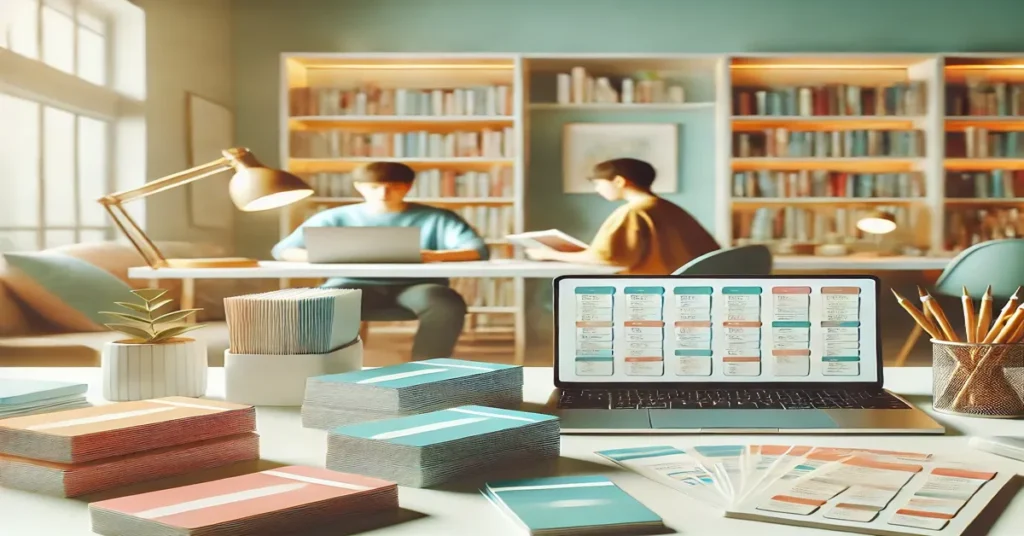Flashcards are more than just a stack of cards with questions and answers; they represent an active learning method that challenges your brain to retrieve information. This process strengthens neural connections, making it easier to recall information in the future. Unlike passive review methods like re-reading notes or highlighting, flashcards engage your memory actively, boosting retention significantly. Their adaptability is another key advantage. Flashcards can be tailored for any subject or purpose, from mastering a foreign language to remembering historical facts or scientific formulas. They can include text, images, or even audio cues, catering to various learning styles.
How to Maximize the Benefits of Flashcards
To fully leverage flashcards, it’s essential to pair them with effective learning techniques:
- Active Recall: Regularly test yourself on the content instead of passively reviewing it.
- Personalization: Customize flashcards to match your learning style and subject needs.
- Consistency: Use flashcards frequently for short, focused study sessions.
Enhance Retention with Spaced Repetition
A key strategy to improve memory retention with flashcards is using a spaced repetition app. Spaced repetition involves reviewing material at increasing intervals, helping your brain encode it more effectively over time. Apps like Anki or Quizlet incorporate algorithms that optimize these intervals based on your performance, ensuring you revisit challenging concepts more frequently. This scientific approach reduces the forgetting curve and maximizes long-term retention, making it particularly effective for subjects requiring detailed memorization.
Digital Flashcards vs. Traditional Cards
With advancements in technology, digital flashcards have gained popularity. They offer features such as multimedia support, progress tracking, and accessibility across devices, making them convenient for learners on the go. Traditional flashcards, however, remain a favorite for hands-on learners who enjoy the tactile experience of writing and handling cards. Both options have their advantages, and the choice often depends on personal preferences and study habits.
Incorporating Flashcards into Your Routine
Flashcards are versatile and can easily fit into any schedule. Use them during your commute, while waiting in line, or as a quick refresher before bed. By dedicating even a few minutes a day to flashcard reviews, you can maintain a steady pace of learning without feeling overwhelmed. For group study sessions, flashcards are excellent tools for quizzing peers, promoting interactive learning, and making the process more engaging. When studying alone, they help focus on specific areas, ensuring no topic is overlooked.
The Benefits of Flashcards for Lifelong Learners
Whether you’re a student, a professional, or someone with a passion for continuous learning, flashcards offer a flexible and effective way to achieve your goals. By promoting active engagement and strategic review, they help you master new concepts, refine existing skills, and retain knowledge for the long term.
Conclusion
Flashcards are a timeless and adaptable study strategy that continues to prove its worth in modern education. When combined with tools like spaced repetition apps and effective learning techniques, they empower learners to retain information efficiently and achieve academic or professional success. Embrace the power of flashcards and make them an integral part of your study routine for smarter, more effective learning.







